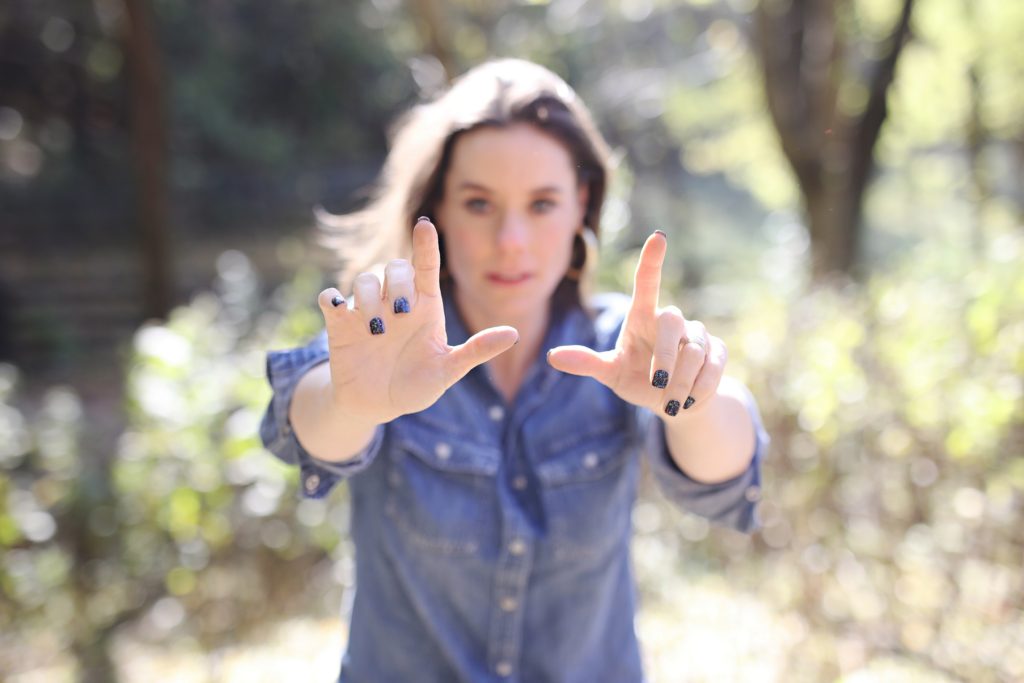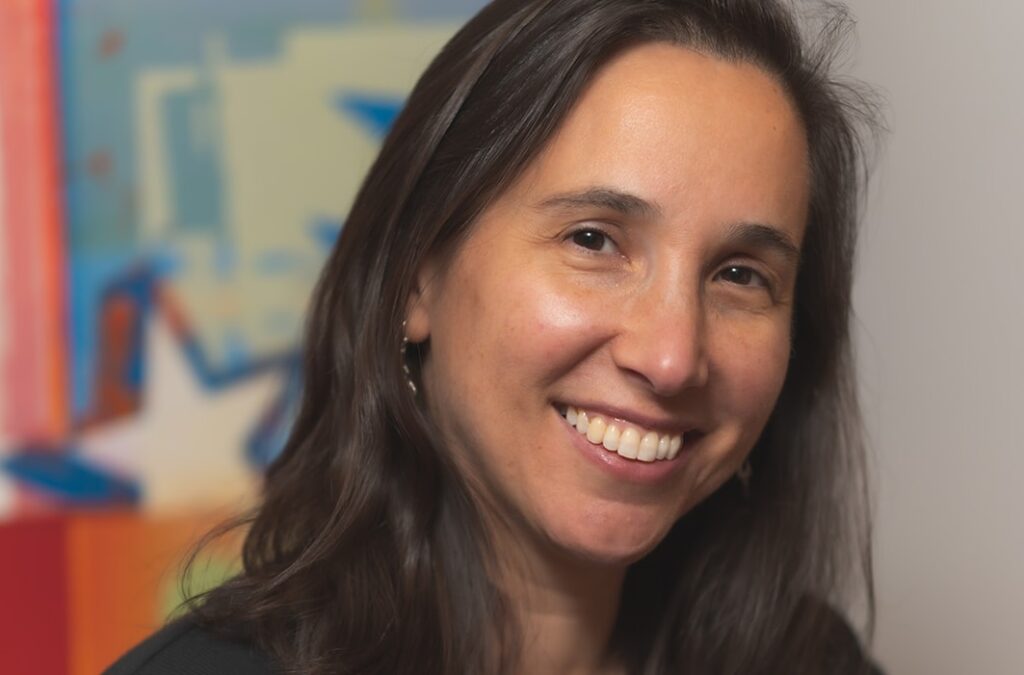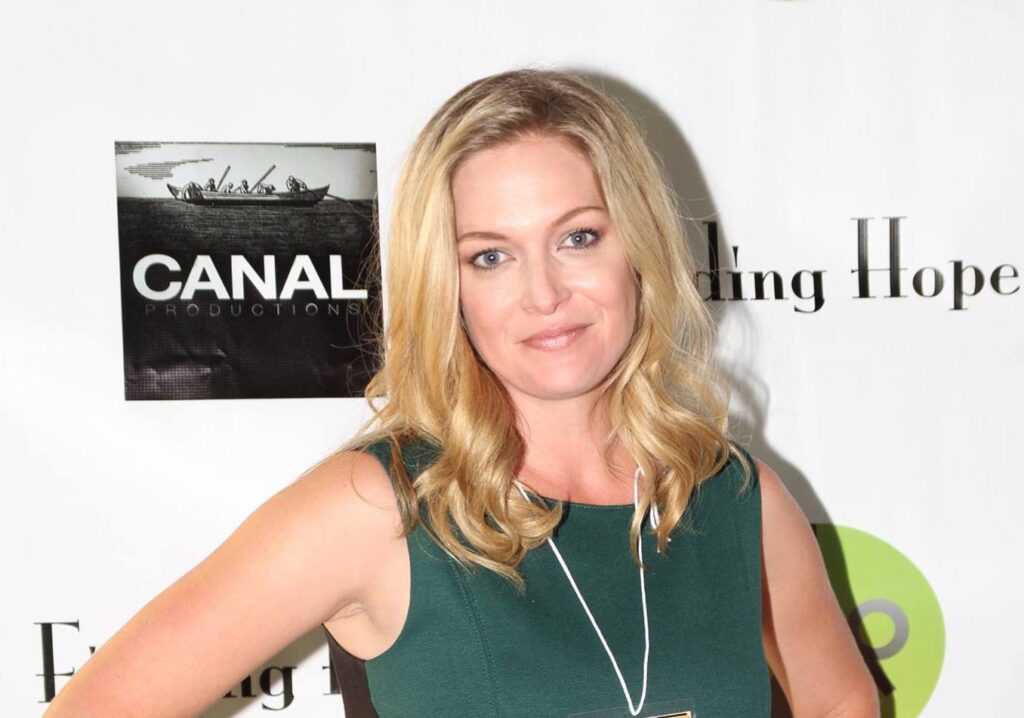Guest Post by Ashley Williams
I’d been counting the calls. The phone in my back pocket buzzed for the 10th time. Or was it the 11th? I still didn’t reach for it.
Her face flashed in my head. Smiling, proud, gorgeous. The phone buzzed again.
“Screw it,” I said. I gritted my teeth. My eyes were met with a litany of messages from friends.
“Oh babe. I just read the news. You okay?”
“I cannot believe this. You deserve better than this.”
“This business is savage.”
Most messages included the link to a minutes-old article posted on Deadline, the most up-to-date source of industry news. My thumb clicked through. There she was under the headline, just like in my head. Smiling. Proud. Gorgeous. The story announced news I’d learned a few days prior. She was replacing me as “the wife” in a promising Fox television pilot. Despite the shame of rejection, of being fired, I found myself happy for her. She did it. She got a big job. I imagined her phone blowing up with congratulations somewhere else in LA this very moment. My phone buzzed again in my hand.
“Vodka or tequila?” the message read. It was a friend I’d always loved. We’d connected at a book club years before but had never really hung out just the two of us. She also happened to be a high-powered TV executive at Netflix.
“Tequila,” I answered. Her response came immediately: “Text me your address. I’ll come after work.”
Three hours later, she handed me a margarita — an especially strong one. The burn of alcohol down my throat matched the shame in my gut.
“Thank you,” I said, wanting to cry.
“I’m so sorry. It’s not your fault. When a show’s not working, and they don’t know what else to do, they replace the wife. I’ve seen it over and over again.” I nodded, tears finally spilling out of my eyes.
“Thank you,” I said again.
“So. Ashley.” She put her tequila down on the coffee table. “What are you doing?” she asked. I didn’t know what she meant. “I Googled you today,” she went on. You’ve been working since you were 11 years old. Over 200 episodes of television. A dozen movies. You are smart. People love you. Are you really going to keep doing this for the rest for your life? You can do so much better than playing the replaceable wife.”
I stared at her, wiping my eyes. I still didn’t understand what she hinting at.
“You should be directing television. You have way more set experience than people I’m giving episodes to right now.”
The truth was, I’ve always wanted to direct. Years of being directed by (mostly) men who were telling stories meant (mostly) for women had worn on me. In recent years as an actress, my ideas on set for fixing a glaring plot hole or an uneconomical blocking choice were always met with a raised eyebrow and then, seconds later, “She’s got a good idea, here, guys.” For the last decade I hadn’t wrapped a job without the director hugging me and saying, “You should be doing my job.”
But it wasn’t just positive experiences that ran through my mind. The unsettling reality of self-doubt — and the men who contributed to it — quickly crept in. “Why don’t you stick to wearing your bikini…?” the cameraman had said when I expressed curiosity about a camera lens in my teens. Whenever I’d considered doing anything behind the camera, I always shied away because of what I call the How-Dare-You Factor. You’re an actress. Maybe a producer, as long as you stay easy to work with. How dare you think you can do someone else’s job, especially one that requires such a commanding vision, and especially one where there are plenty of people doing it successfully already?
“There are plenty of directors out there,” I said.
“We need more women directors,” she shot back, referring to the current surge in opportunities for females in power.
“Right. But I’m not trained,” I said, shaking my head. She smiled, picking up her drink again.
“Then train yourself. I dare you.” I can never resist a dare.
“This is going to be expensive,” my husband, an indie film producer, said at the kitchen table when I confessed my ambition. “And it’s going to take a while. At least a year, maybe more.” I was nervous, watching his face carefully. He grabbed a yellow pad and wrote “curriculum” at the top. He emphasized that the money would be an investment in me, so it’d be worth it. “It’s why we have savings,” he reassured me. “And you’re going to be so good at it.” Neal was always the first to gently tell me if I had a terrible idea, but he seemed ignited by this one.
“It’s grad school. You’ll need professors. We need to get you writing. We’ll need to make a few short films and pay for them. They might be terrible but that’s your directing 101 class. You’ll write thesis papers on what you learn. I have some books you should read. You’ll take notes. We’ll apply to every program that you’re eligible for.” I inhaled deeply, a flood of ideas rushing to my brain. I grabbed his hand which was already writing a to-do list.
The first semester in my self-made grad school directing curriculum was all freshmen adrenaline, chock-full of humble asks and application fees. A new book arrived via Amazon every few days. I treated TV watching like a class, taking notes in my “directing notebook.” I had 4 a.m. call times to shadow a director — that’s code for observing a professional director during prep and shoot for educational purposes — deep in Brooklyn, outside, in 10-degree weather. One morning I was sent to get coffee orders for 20 crew members and chose to pay for it out of pocket. I remember walking in the dark, balancing the drinks on trays stacked three high, breathing in the warmth of the coffee and whispering to it in semi prayer, “I hope they drink this and know how grateful I am. I also hope they know I am buying answers to annoying camera questions.”
I followed directing mentor Bethany Rooney’s “How to Shadow Appropriately” guide religiously. A shadow should never be seen on the phone — AKA: Go to the bathroom if you need to check on your kids. I arrived on set before the director I was shadowing, and I didn’t leave until he was in his car headed home. I felt guilty eating craft service snacks — I didn’t want to sap the production of its resources just because I had decided to turn it into my classroom. My posture suffered as I ducked behind sets, trying to hear everything the director said while staying out of their way.
Then there was the thrill of getting to direct my own material, a short. The crew was comprised of friends who worked for pizza. My kids’ babysitter was a PA. Neal was my first AD, data wrangler, gaffer, and therapist. My hands shook with excitement for days after we wrapped. “Meats” is about a female butcher — it felt right that I’d direct a story about a woman experimenting with a traditionally male profession. I submitted the project to film festivals and directing programs. In the meantime, I kept writing.
I was rejected from most programs. A network inclusion coach — an advisor for anyone aspiring to write or direct who isn’t a straight white man — offered a blunt perspective. “People will read on your resume that you’re an actress and get scared that you’re not serious. Directing is really, really hard. Not everyone can do it.”
I jumped on this. “I love that it’s hard. I know I can do it,” I said.
“I understand that. But people who don’t know you will worry that you’re going to get tired and walk off the set. I’ve seen it happen.”
I had to prove myself. Neal and I took the kids for a summer abroad. Well, abroad-ish. We went to Canada. I agreed to play a supporting part in a movie if I could shadow the experienced director whenever I wasn’t on camera. I forwent my trailer, waived my turnaround time and lunch breaks, and I got all my makeup touchups on set so I could watch every moment of shooting. I’d finish acting in a scene, run to the bathroom to change, and take my hair extensions out with one hand as I scribbled down all I’d learned that morning with the other. By the end of the movie the director let me take a tiny b-unit crew off on my own to shoot insert shots. I was tireless, eloquent, and full of solid ideas. I was also having a blast.
It worked. Word got back that I was serious about directing. Three intense interviews later I was offered my first movie to direct: a true crime thriller.
Two weeks later a miraculous call came from the Sundance Film Festival letting me know that “Meats” had been invited to premiere there. I heard programmer Emily Doe’s soft voice on the other end of the phone say, “We think your film is very well directed.” I heard another voice in my head, and it was repeating the words that helped transform my life and career: “You can do so much better than playing the replaceable wife.”
I created my own grad school directing program, and in just over a week I’ll be at Sundance premiering my first short. I’ll walk a tiny red carpet before flying to Vancouver to begin prep on my first movie. It would be easy to call myself a graduate now. But words of advice from one of my self-appointed professors echo in my head: “I learn something new every day as a director. If I’m not constantly learning, I’m doing something wrong.” That idea excites me. The work of learning is never done. My education will continue as long as my career does.
“What’s she doing now?” my Netflix friend, now an executive at ABC, asked me when we last met up. She was referring to the proud, smiling, gorgeous face of my replacement on the Fox pilot. The show hadn’t gotten picked up.
“No idea,” I said. I had stopped the painful Google alerts awhile back. “I’m sure she’s got a great job again. She’s so good.” I did a quick casting scan of my upcoming directing gig: I wonder if she’d be good as the lead, I thought. I should check her availability. Then, another thought crossed my mind.
“I bet she’d be a really good director,” I said. She was experienced. Lovely. If she wanted to, I bet she’d nail it. I smiled then, and giggled, “I hear they’re accepting applications for a weird new graduate school program that no one ever really finishes.”
Come on, women everywhere. I dare you.
Ashley Williams directed, wrote, produced, and starred in “Meats,” a short film that premieres at the Sundance Film Festival in January 2020. She’s shadowed major television directors and is developing a television series called “Killing It” alongside “How I Met Your Mother” director-executive producer Pamela Fryman. She is developing a handful of television projects for herself to direct, as well as continuing to produce projects for Hallmark, where she conceived of, developed, executive produced, and starred in “Love On A Limb.” Williams has several projects in development at Hallmark, and has a deal to direct a movie for them later next year. She is also in early pre-production on a Lifetime television movie that she is directing in early 2020.
Williams is best known as an actor in film, television, and theater. She’s shot over 150 episodes of prime-time television, a dozen TV pilots, and more than a dozen films and television movies. She starred in “The Jim Gaffigan Show” for two seasons playing Jeannie Gaffigan. Her film credits include “A Most Violent Year,” “Something Borrowed,” and “Margin Call.”







